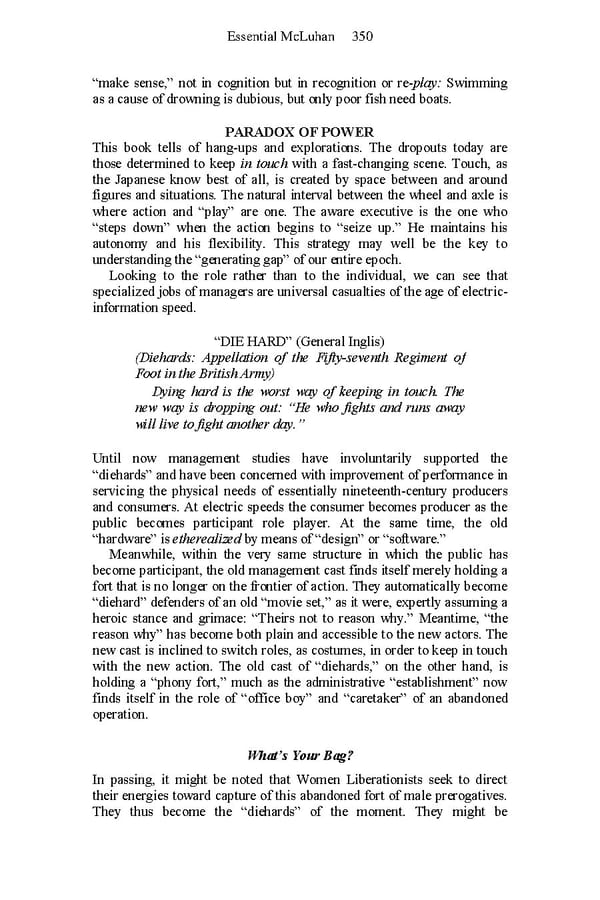Essential McLuhan 350 “make sense,” not in cognition but in recognition or re-play: Swimming as a cause of drowning is dubious, but only poor fish need boats. PARADOX OF POWER This book tells of hang-ups and explorations. The dropouts today are those determined to keep in touch with a fast-changing scene. Touch, as the Japanese know best of all, is created by space between and around figures and situations. The natural interval between the wheel and axle is where action and “play” are one. The aware executive is the one who “steps down” when the action begins to “seize up.” He maintains his autonomy and his flexibility. This strategy may well be the key to understanding the “generating gap” of our entire epoch. Looking to the role rather than to the individual, we can see that specialized jobs of managers are universal casualties of the age of electric- information speed. “DIE HARD” (General Inglis) (Diehards: Appellation of the Fifty-seventh Regiment of Foot in the British Army) Dying hard is the worst way of keeping in touch. The new way is dropping out: “He who fights and runs away will live to fight another day.” Until now management studies have involuntarily supported the “diehards” and have been concerned with improvement of performance in servicing the physical needs of essentially nineteenth-century producers and consumers. At electric speeds the consumer becomes producer as the public becomes participant role player. At the same time, the old “hardware” is etherealized by means of “design” or “software.” Meanwhile, within the very same structure in which the public has become participant, the old management cast finds itself merely holding a fort that is no longer on the frontier of action. They automatically become “diehard” defenders of an old “movie set,” as it were, expertly assuming a heroic stance and grimace: “Theirs not to reason why.” Meantime, “the reason why” has become both plain and accessible to the new actors. The new cast is inclined to switch roles, as costumes, in order to keep in touch with the new action. The old cast of “diehards,” on the other hand, is holding a “phony fort,” much as the administrative “establishment” now finds itself in the role of “office boy” and “caretaker” of an abandoned operation. What’s Your Bag? In passing, it might be noted that Women Liberationists seek to direct their energies toward capture of this abandoned fort of male prerogatives. They thus become the “diehards” of the moment. They might be
 Essential McLuhan Page 356 Page 358
Essential McLuhan Page 356 Page 358